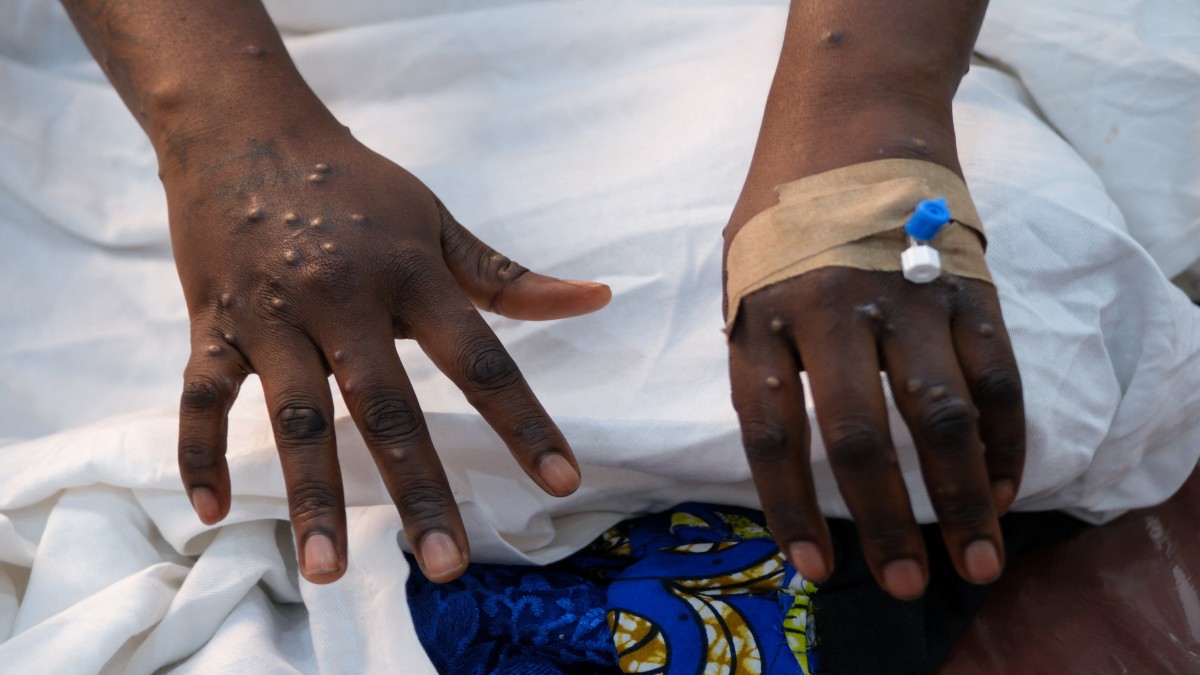The World Health Organization has declared that a recent outbreak of mpox represents a global health emergency for the second time in two years.
A more deadly and contagious variant of the virus has claimed the lives of over 600 people since the beginning of 2024.
Besides Africa, new cases have also been reported in Europe and Asia.
In the latest incident, the virus has been detected in a prison in the United States.
Here’s all we know about it.
Mpox outbreak strikes US prison
According to Newsweek, mpox has been detected in Fort Dodge Correctional Facility in Iowa, which has a population of 1,251.
The strain found within the prison has been classified as the less serious clade II, though it is unknown how many inmates have been affected.
The prison staff have told local press that they were controlling the situation.
“We’re actively managing the situation with robust health measures,” Iowa Department of Corrections Chief of Staff Paul Cornelius said in a statement to the Des Moines Register, initially reported by KCCI-TV.
He added, “Affected individuals are receiving care, and enhanced sanitation and isolation protocols are in place to prevent further spread.”
Clade I mpox has not yet been found in the United States, but should it spread, the Department of Health and Human Services (HHS) stated that it anticipates the virus will “cause lower morbidity and mortality in the United States” than it has in Africa, the report said.
Also read: From Africa to Sweden and now Pakistan, how mpox is spreading across the globe
About mpox
Mpox is a viral infection caused by the monkeypox virus, which belongs to a genus of viruses called Orthopoxvirus.
The Orthopoxvirus family consists of the variola virus, which causes smallpox, the cowpox virus, and the vaccinia virus.
The common symptoms of mpox include skin lesions, fever, headache, muscle and back pain, low energy, and swollen lymph nodes.
The disease spreads through physical contact with an infected person, materials or animals.
Mpox drew global attention in 2022 during an outbreak that affected the US, Europe, Australia, and many other countries.
Types of the virus
The virus spreads by close contact and exists in two different forms, known as clades: I and II.
Men who engage in sexual activity with other men are most vulnerable to contracting Clade II mpox, which is mostly transmitted through personal and sexual contact.
Endemically found in West Africa, Clade II mpox is the strain that sparked a global outbreak in 2022. The Centres for Disease Control and Prevention (CDC) state that it is “less severe,” with more than 99.9 per cent of patients surviving.
Clade I, on the other hand, is endemic to Central Africa and has killed up to 10 per cent of those infected. The US has not yet been affected by this strain.
Clade 1b has triggered global concern due to the ease with which it spreads though routine close contact.
The strain is a modified variant of clade I, an endemic type of mpox that has been present in the Congo for many years and spreads by contact with infected animals.
Congo has had more than 18,000 suspected clade I and clade Ib mpox cases and 615 deaths this year, according to the WHO. There have also been 222 confirmed clade Ib cases in four African countries in the last month, plus a case each in Sweden and Thailand in people with a travel history in Africa.
Treatment
Currently, there are a few vaccines against
mpox, including Jynneos (MVA-BN) and Acam2000.
The MVA-BN vaccine, or the Modified Vaccinia Ankara-Bavarian Nordic, has been approved by the United Kingdom, the United States, the European Union/European Economic Area (EEA), Switzerland and Canada.
Developed around the 1950s, the Modified Vaccine Ankara vaccine was used to protect against smallpox. Its current form, MVA-BN, is reportedly marketed as Jynneos, Imvamune and Imvanex.
The US Food and Drug Administration (FDA) has green-lit ACAM2000 for protection against smallpox and mpox.
In 2022, Japan gave a nod to the smallpox vaccine LC16 for use against mpox. Russia licenced OrthopoxVac the same year for vaccination against smallpox, mpox and other Orthopoxviruses.
A new mRNA vaccine — BNT166 — is being developed to particularly target antigens on the monkeypox virus, reported DW.
Global alarm
As per the WHO, nearly 103,000 mpox cases have been confirmed worldwide.
After the global emergency last year, the new mpox strain has killed over 600 people.
Recent cases have been reported in Europe and Asia, prompting the health agency to reissue a global health emergency in August this year.
Numerous nations have taken precautions, including inspecting ports and initiating vaccination efforts, in response to the global agency’s highest alert.
India has no reported cases of mpox, however, the country is on high alert. The health ministry has directed heightened vigilance at all international airports and land ports, particularly those bordering Bangladesh and Pakistan.
Soon after the second case was reported in Pakistan, China also amplified its surveillance at ports of entry. Aircraft and vessels carrying containers, as well as cargo, arriving from nations and areas with mpox cases will also be sanitised, as per local news.
Similarly, Japan and South Korea are also on alert.
Nigeria, which confirmed 40 mpox cases with no fatalities yet, will begin vaccinations for mpox from October 8 after regulatory approvals are concluded. The country received the first batch of 10,000 doses of the mpox vaccine from the US Agency for International Development on Tuesday.
Soon after it detected 13 cases of mpox clade II infections this year, Singapore said it was monitoring the global situation closely.
The United Nations Children’s Fund (UNICEF) has issued an emergency tender to secure mpox vaccines for crisis-hit countries in collaboration with the Gavi vaccine alliance, Africa CDC and the /WHO, the organisations said in a joint statement on Saturday.
Depending on the production capacity of manufacturers, agreements for up to 12 million doses through 2025 can be made, according to the statement.
Under the tender, UNICEF will set up conditional supply agreements with vaccine manufacturers, the statement said.
With inputs from agencies



)


